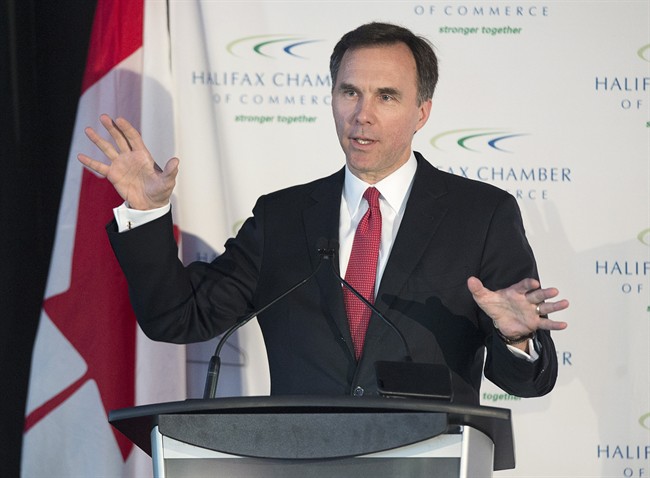The Conservatives used their Opposition Day motion on Thursday to offer the Liberal government a seemingly impossible choice.

The Liberals could either vote in favour of the motion, which congratulated public servants for their diligent work in puzzling out the country’s financial situation at the end of 2015, or they could vote against it.
It seemed like a no-brainer. After all, what government would want to oppose a motion that heaps praise on the hardworking public servants who toil in obscurity in Ottawa?
The problem is that the public servants were being patted on the back for producing a Fiscal Monitor update last fall “which informed Members and Canadians that, for the period from April to November 2015 … the previous government posted a budgetary surplus of $1.0 billion.”

The Liberals have always maintained that they inherited a deficit when they took power in November. To add insult to injury, the Conservative motion tabled on Thursday asked the Liberals to formally agree with the finance department’s $1 billion surplus assessment, essentially confirming that they had balanced books last fall, and then squandered them.
“Numbers don’t lie,” Conservative finance critic Lisa Raitt told reporters outside the House. “When we handed over the keys to the House, they had a surplus in hand. The report from the fiscal monitor is produced by Finance Canada. It’s completely separate from any partisan involvement.”

Get breaking National news
The motion was being put forward “in good faith,” Raitt added.
“If there are members of the House who vote against this motion today … what they’re basically saying is that they don’t believe (the finance department’s) numbers, that they don’t have faith in their officials.”
The debate that followed in the House of Commons was predictably raucous, and at one point even devolved into to a series of sports metaphors.
Even Finance Minister Bill Morneau had to acknowledge that the motion was a “clever” political move.
“At first glance, it seems to present an impossible choice,” he said. “But this motion is nothing more than yet another example of the party opposite’s contempt for the very professionals that they now want to so valiantly support.”
Morneau accused the Conservatives of “cherry picking data to use as a political football,” explaining that a November fiscal update produced by the same finance department confirmed that circumstances had changed “and that predictions made by the previous government in their budget were off by about $6 billion dollars.”
Low crude prices, and a weakness in the global financial situation have gotten even worse in recent months, the finance minister said.
“Make no mistake: The government of Canada will post a deficit for the 2015-16 fiscal year,” Morneau said.
The surplus posted for the six-month period in 2015 highlighted by the Tories did happen, Morneau agreed, but it was the result of a few “one-time” events like the sale of General Motors common shares in April, and higher corporate income tax revenues.
DETAILED ANALYSIS: Did Liberals inherit a 2015-16 deficit from the Conservatives?
NDP House Leader Peter Julian agreed with Morneau. To take that “snapshot” and extrapolate the country’s finances for the entire fiscal year, he said, is basically like saying a hockey team will only be judged by the first half of its season.
Conservative MP Andrew Scheer shot back that it’s more like a second-tier quarterback taking over late in the game and fumbling the football.
Oppositions Days are built into the Parliamentary system and allow Opposition parties to set the agenda. After more than an hour of debate, the Conservative motion still hadn’t come to a vote on Thursday.
The Liberals are widely expected to table their first budget in March or April.


Comments